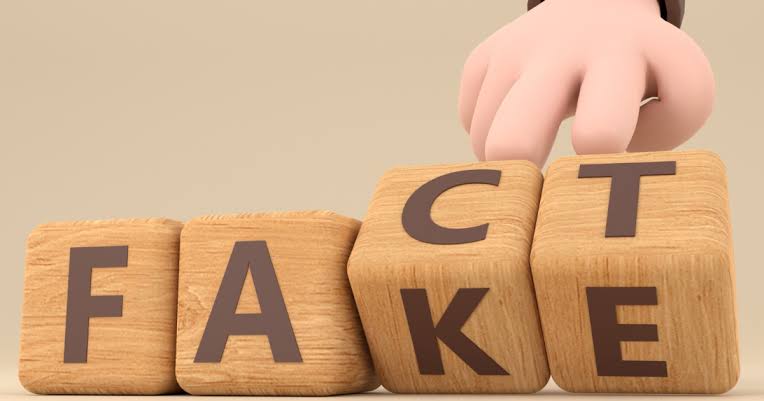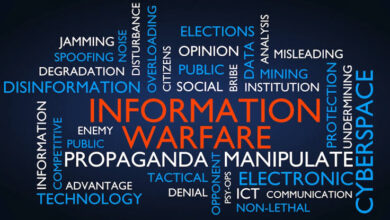Disinformation and Economic Policies: Assessing the Impact of Fake News on Business Operations in Nigeria

By Ajibola Osungbohun
In the digital age, information travels faster than ever, reaching millions within seconds. While this rapid dissemination of information has numerous benefits, it also presents significant challenges, especially when false or misleading information—commonly referred to as “fake news”—spreads unchecked. In Nigeria, the spread of fake news has become a pressing concern, impacting not only public perception and political discourse but also the country’s economic policies and business environment. This article explores how disinformation affects business activities in Nigeria and the broader implications for economic growth and stability.
The Rise of Business Disinformation in Nigeria
Business disinformation is the intentional spread of false or misleading information to deceive the public or for economic gain. Nigeria’s media landscape has expanded rapidly with the growth of internet access and the widespread use of social media platforms such as Facebook, Twitter (now X), WhatsApp, and Instagram. While these platforms provide avenues for information sharing and business promotion, they have also become breeding grounds for the spread of false information. Disinformation in Nigeria often targets political events, public health, security, and economic issues, exploiting the public’s trust in informal communication channels.
Disinformation campaigns may stem from political motives, economic sabotage, or social mischief. For instance, during election periods, misinformation about economic policies is frequently used to sway voters or undermine opponents. Similarly, rumors about currency devaluation, policy reversals, or import bans often circulate without verification, causing widespread panic in the financial markets and business sectors.
How Disinformation Affects Economic Policies
Economic policies support national growth and business stability, but fake news disrupts this balance. Misinformation triggers market instability, distorts business decisions, causes financial sector disruptions, and interrupts supply chains. These effects deter investors, harm businesses, and inflate prices, ultimately threatening Nigeria’s economic progress and consumer welfare.
Real-World Examples of Fake News Impacting Nigerian Businesses
Several instances highlight how fake news has adversely impacted Nigeria’s business environment:
Fuel Scarcity Rumors: On multiple occasions, fake news about impending fuel price hikes or shortages has led to panic buying and artificial scarcity, severely disrupting transportation and business logistics.
Naira Devaluation Hoaxes: False claims about the Central Bank’s plans to devalue the naira have led to hoarding of foreign currencies, sharp increases in exchange rates, and inflation, negatively affecting import-dependent businesses.
COVID-19 Misinformation: During the COVID-19 pandemic, misinformation about lockdowns and border closures caused supply chain disruptions and business uncertainty, especially for small and medium-sized enterprises (SMEs).
Leading Figures in Business Disinformation
A report by the International Press Centre (IPC) has revealed that fintechs and banks are the most targeted for disinformation and misinformation, this was made known while presenting the ‘Report of Trends Dis/Misinformation Around Business Firms in Nigeria.
The summary revealed that fintech and banking institutions maintain the status of being the biggest targets constituting about 68.3 per cent.
Celebrity CEOs with significant social media presence can be targeted through hacks of social media accounts. Among other potential targets: A company that’s vocal about its stance on controversial issues (political, social, environmental or otherwise); a business making a public transaction or deal such as launching an IPO, conducting a merger or acquisition, rebranding or reorganizing; a new company experiencing a surge in demand for a particular product or service.
Reason for Business Disinformation
Business disinformation attacks often arose from motives like financial gain, market disruption, competitive interference, and issue advocacy. For financial gain, AI-generated voice spoofing led to a fraudulent transfer, while fake job ads tricked workers into unknowingly shipping stolen goods. To disrupt competition, false reports of a takeover bid and a fabricated government memo hindered company mergers, affecting stock prices. Market disruption occurred when false claims about 5G health risks. In issue advocacy, false rumors about organisations leaving Nigeria that aimed to harm a country’s economy or the brand’s reputation.
Manipulation of Technology to spread Business Disinformation
Business Disinformation using technology attacks differ from traditional cyberattacks by targeting human thinking instead of technical systems. I.e instead of attacking computers or networks directly, the attackers focus on tricking or manipulating people, they do this by spreading false information or using deceitful tactics to influence how people think, make decisions, or behave, often to achieve their goals, like spreading confusion or gaining money. It’s like trying to control someone’s mind or actions rather than hacking into their computer. Using tools like social media posts, fake news sites, and deepfakes to manipulate perceptions and behaviors. Unlike quick cyberattacks, Attackers may combine malware and disinformation to harm a company’s reputation or use fake identities for financial fraud.
How to Combat Disinformation and Protecting Businesses
To mitigate the negative effects of disinformation on Nigeria’s economic landscape, several strategies must be implemented:
1. Strengthening Media Literacy
There is a critical need for widespread media literacy campaigns to educate the public and business owners on identifying fake news. Educational institutions, media organizations, and civil society groups must collaborate to promote critical thinking and responsible consumption of information.
2. Fact-Checking and Verification Platforms
Fact-checking organizations like FactCheckAfrica have made progress in debunking false information. However, more proactive engagement is needed, especially in the economic sector. Government agencies should work with these organizations to verify and swiftly counteract misinformation related to economic policies.
3. Regulatory Frameworks
The Nigerian government must strengthen its legal frameworks to hold individuals and organizations accountable for spreading harmful disinformation. However, this must be balanced to avoid infringing on freedom of expression and press freedom.
4. Real-Time Government Communication
Timely and transparent communication from government institutions, especially those involved in economic policymaking, is crucial. The Central Bank of Nigeria, the Ministry of Finance, and other regulatory bodies should maintain active communication channels to clarify policies and dispel rumors promptly.
5. Technological Solutions
Leveraging technology, such as artificial intelligence and blockchain, can help detect and flag disinformation early. Social media platforms must also be held accountable for monitoring and removing fake news, especially content that directly impacts economic policies and business operations.
Conclusion
Fake news and disinformation causes significant threats to Nigeria’s economic stability and business environment. From distorting economic policies to causing market panic, to malware of technology, the consequences are severe and far-reaching. Businesses operate best in stable, predictable environments, and disinformation undermines this foundation. Combating fake news requires a collaborative approach involving media literacy, fact-checking initiatives, stronger regulatory policies, and proactive communication strategies. For Nigeria to achieve sustainable economic growth, it is imperative to safeguard its business environment against the disruptive influence of fake news. Collective efforts from the government, private sector, media organizations, and citizens are essential in ensuring that accurate, verified information guides economic decisions and policies.



